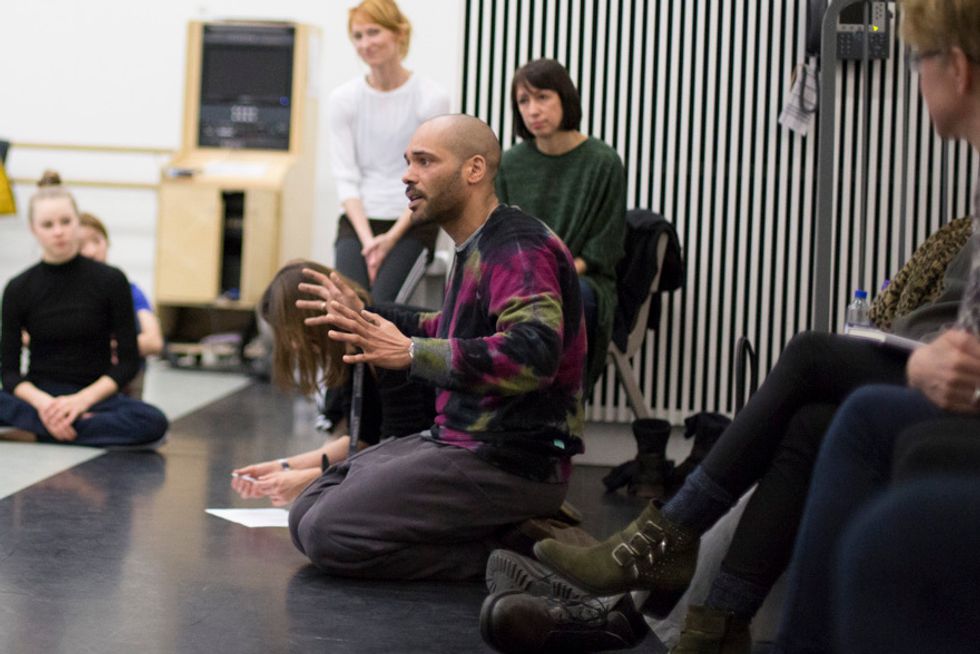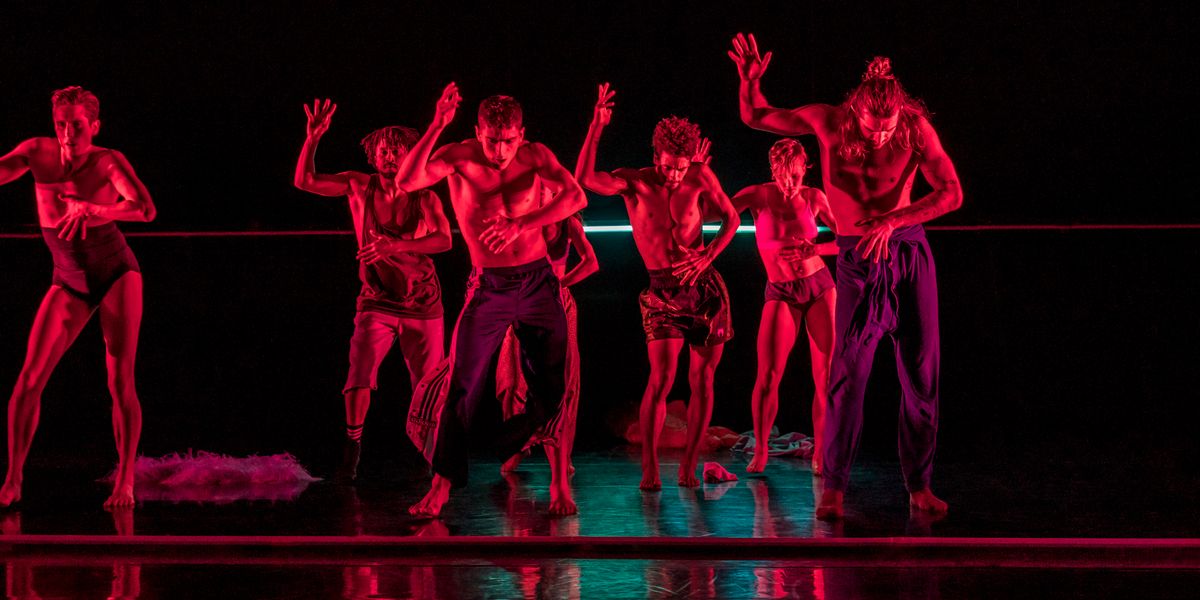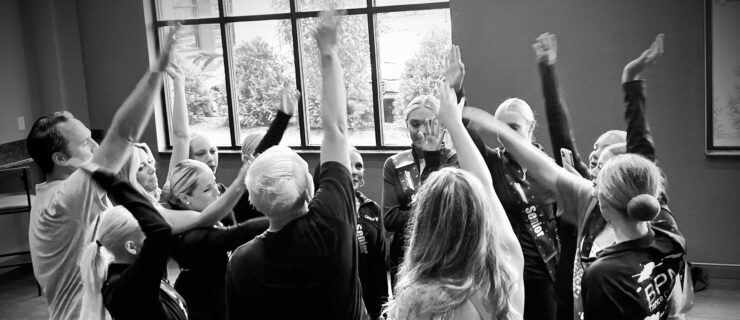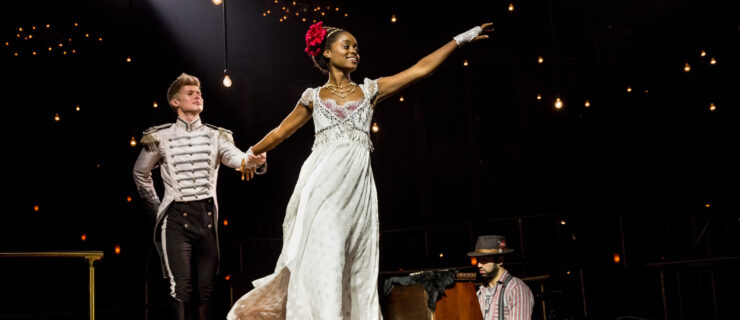Under Benoit Swan Pouffer, Rambert Has Become London's Trendiest Old Rep Company
An evening-length creation by Sharon Eyal. A Cunningham Event. Works by Wayne McGregor, Hofesh Shechter and new names including Marion Motin. The current season of British contemporary company Rambert reads like many dancers’ bucket list, and there is a new artistic director behind it: Benoit Swan Pouffer.
Best known stateside for his tenure with the now-disbanded Cedar Lake Contemporary Ballet, the French-born Pouffer has taken on a completely different challenge with Rambert. His mission in London is to reinvigorate a repertory company founded in 1926, and he is well on track. Motin’s world premiere last year, Rouge, prompted The Guardian‘s dance critic, Lyndsey Winship, to write approvingly: “Rambert might be Britain’s oldest dance company but they’re downing the elixir of youth.”
Pouffer himself exudes confident energy. He was initially brought on by chief executive Helen Shute in 2017 to oversee select projects, including the creation of Rambert2, the organization’s youth company, shortly before Mark Baldwin announced he would be stepping down as artistic director.
“My first impression was: huge potential, a bit dusty,” Pouffer says. Rambert brought him back to his seven years as a dancer with Alvin Ailey American Dance Theater. “I understand what a legacy is, and what you can do with a company like this.”
He hadn’t intended to take over another company so soon after Cedar Lake, which he turned into an unlikely success story between 2004 and 2013. The New York City–based troupe was founded and bankrolled by a single donor, Walmart heiress Nancy Laurie. Pouffer’s artistic acumen allowed it to punch above its weight and introduce American audiences to then-emerging choreographers like Shechter, Crystal Pite and Alexander Ekman.
 Benoit Swan Pouffer in the studio
Benoit Swan Pouffer in the studio
Nathan Hands, Courtesy Rambert
“Cedar Lake was one of a kind. People were doubtful at first, and I understand: We popped out of nowhere,” Pouffer reminisces. After a decade at the helm, however, fatigue settled in, especially since he wasn’t working on outside projects. “I felt like I was repeating myself, to be truly honest. I didn’t have to search for up-and-coming choreographers anymore: They were coming to me.”
After stepping down, Pouffer relished freelance life, even crossing over to choreograph a cabaret revue with director Franco Dragone at the famed Lido in Paris. Rambert was barely on his radar, although he had heard of it during his dance training in France in the 1980s. “I knew it was a rep company, and I knew Marie Rambert—I thought she was French,” he says with a laugh, referring to the company’s Polish-born founder, one of the pioneers of ballet in the UK.
Pouffer is the first Rambert director to have never danced with the company, and he immediately set out to implement some changes. “I just felt like the company needed a bit of fuel, strong ideas—basically, like how it was in the 1950s, 1960s, when they were doing things that were very avant-garde.”
That has meant setting aside, for a time, some signature works from the company’s vast back catalog to prioritize new productions. “Being around for 93 years, obviously there are masterpieces in the vault. But I’ve told the people who hired me: I want to change the perception of Rambert, and right now, I think it’s crucial that I choose what’s happening right now.”
Pouffer is quick to add that he doesn’t want Rambert to be another Cedar Lake. Instead, he is going for a mix of productions designed to reach different audiences, from Rambert’s Cunningham Event, a mix of Cunningham excerpts from the “vault,” to Invisible Cities, a site-specific blockbuster Sidi Larbi Cherkaoui choreographed for Manchester International Festival last summer. Pouffer’s taste for crossover collaboration is evident elsewhere: This winter, he paired Eyal up with Kibwe Tavares, a director specializing in 3-D animation and live-action films, to create Aisha and Abhaya, a “contemporary fairy tale.”
Pouffer is keen to keep nurturing new choreographic talent. “I’m a dance geek. At Cedar Lake, I would travel everywhere to see anybody,” he says. “I’m not an artistic director that says, ‘You have five weeks, we’ll see each other at the premiere.’ When I see someone going in the wrong direction, I’ll tell them, ‘This is what it will do to us, or what it’s going to miss, and let me show you why.’ ”
There’s been turnover in the company, with some dancers leaving and three Cedar Lake alumni hired on short-term contracts: Soojin Choi, Guillaume Quéau and Joaquim de Santana. “I don’t look for the best technique or physical abilities, because that gets old,” Pouffer says. He looks instead for dancers who intrigue him with their decisions onstage. “They need to know where they come from, their flaws, because that makes them human, that makes them connect with the audience.”
Rambert2 has quickly become an essential part of that puzzle: Five dancers from the first cohort of 13 are currently in the main company. Alongside repertory works, they get prestigious world premieres of their own. This season, American choreographers Andrea Miller and Jermaine Maurice Spivey are creating for them. The yearlong program also grants eligible trainees a postgraduate degree—a master’s in professional dance performance.
Running two companies has been one of the major differences from Cedar Lake, Pouffer says, along with steady public funding (Rambert receives the equivalent of around $3 million a year from Arts Council England, about 40 percent of its budget) and a board of which the director is appreciative. “It’s not like America—you don’t pay your way in. Here, it’s about what you can contribute in terms of knowledge, so we have experts in communication, in design…”
He admits that he has had to adjust his approach to work, however. “Things do go slower than in America, where the competition is huge and nothing is certain,” Pouffer says. “I have an obsessive personality, so when I see something, I don’t let go until it gets there. I’ve had to adapt, in terms of expecting turnover, how fast everything goes. They have a different culture here, but I love England.”
This year, Rambert will pay tribute to one of the UK’s most revered dancemakers: Lloyd Newson, the founder of DV8 Physical Theatre. For the first time, Newson has agreed to restage one of his productions for another company. For Enter Achilles, an exploration of masculinity through pub culture, created in 1995, he has selected dancers who will be hired by Rambert but remain separate from the two main companies. “We call them ‘satellite projects,’ ” Pouffer explains. “I want people to understand that Rambert is a brand, a philosophy. They are still Rambert dancers.”
Pouffer has the track record to back up his ambitions, and the British dance world has so far welcomed them. “I like to think that Rambert is going to become the flagship of contemporary dance in the UK,” he muses. “I think we have the potential. And why not in Europe? The world?”




